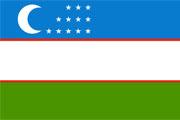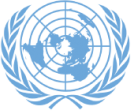The Republic of Uzbekistan attaches considerable importance to drug demand and supply reduction activities, which are carried out in accordance with the drug control strategy set out in the programme of comprehensive measures to combat drug abuse and drug trafficking for the period 2011-2015. Attention was paid to improving the regulatory framework governing the trade in narcotic substances and the provision of drug addiction treatment, and to building the logistical and human resources capacities of special law enforcement units and addiction treatment services.
In view of the results achieved and evolving drug trends, a similar programme was prepared for 2016-2020 to ensure that State and civil society organizations continue implementing coordinated organizational, legal and practical measures to effectively prevent, identify and suppress illicit trafficking.
I. Combating illicit drug trafficking
In 2015, the law enforcement agencies of Uzbekistan focused on impeding drug trafficking, particularly by blocking the channels through which drugs illegally enter or transit through the country and by eliminating established organized criminal groups.
As a result of the organizational, practical, operational and preventive measures taken by the law enforcement agencies, 6,648 drug trafficking crimes were identified in 2015 (6,698 in 2014).
Of the total number of drug-related crimes identified, 3,017 involved drug sales (3,062 in 2014), 709 involved smuggling (607 in 2014), 1,301 involved the illegal cultivation of narcotic plants (1,320 in 2014) and 1,621 were other drug-related crimes (1,709 in 2014).
A total of 2 tons and 510 kg of trafficked narcotic substances were seized (2 tons and 298 kg in 2014), including 147.9 kg of heroin (106.5 kg in 2014), 882.3 kg of opium (881.9 kg in 2014), 1,025.1 kg of marijuana (802.9 kg in 2014), 250.2 kg of hashish (100 kg in 2014), 204.7 kg of koknar (406.4 kg in 2014) and 7,184 tablets of psychotropic substances (18,596 in 2014).
A two-stage integrated large-scale operation known as Black Poppy 2015 was conducted by the law enforcement agencies of Uzbekistan, with the participation of local government and community representatives, in order to effectively eliminate drug trafficking, identify and suppress the illegal cultivation of narcotic plants and prevent drug trafficking crimes.
Some 10,000 internal affairs officers and over 5,000 local government and community representatives were involved in the operation. During the operation 2,687 drug-related crimes were detected (2,900 in 2014) and 621 kg of narcotic substances were seized (852 kg in 2014), including 761 grams of heroin (111 grams in 2014), 28.8 kg of opium (13.8 kg in 2014), 8.1 kg of hashish (12.7 kg in 2014), 437.4 kg of marijuana (461.8 kg in 2014), 145.5 kg of koknar (363.8 kg in 2014) and 88 grams of psychotropic substances (33 grams in 2014).
II. Combating new types of psychoactive substances
A global trend witnessed over the last few years has been the spread of new types of psychoactive substances (spice smoking blends and other synthetic cannabinoids) as substitutes for traditional narcotic drugs.
The National Information and Analytical Centre for Drug Control (NIACDC) has set up a unit, comprising representatives of the competent authorities in Uzbekistan, to develop preventive measures and proposals in order to counter the new types of narcotic substances.
As a result of work done by the unit to pre-empt the spread of new types of narcotic substances, amendments were introduced to national legislation restricting their trade. In particular, Decision No. 330 of the Cabinet of Ministers of the Republic of Uzbekistan of 12 November 2015 (on enhancing procedures for the import, export and transit through the territory of the Republic of Uzbekistan of narcotic drugs, psychotropic substances and precursors, and trade controls for them) approved an updated list of narcotic drugs banned in the country, together with an additional 80 names of new types of synthetic narcotic substances.
III. Drug abuse: extent, patterns and trends
Data analysis shows an ongoing positive trend in key indicators of the drug situation in Uzbekistan. There was a fall in the national average rate of primary morbidity related to drug addiction, the number of registered drug addicts decreased and the number of intravenous drug users continued to decline.
IV. Prevention of drug addiction
In order to enhance prevention work, the addiction treatment and adolescent psychopathology faculty of the Tashkent Institute of Postgraduate Medical Education developed lecture materials in the Uzbek and Russian languages for primary drug prevention among adolescents and young people, the parents of students (at schools, colleges and universities) and teachers. The lecture materials were made available to the organizational and policy divisions of addiction treatment clinics for use in their work.
In 2015, doctors specializing in drug abuse treatment delivered 6,947 lectures, held 2,338 workshops and issued 632 media publications for various population groups.
Within the public education system, advocacy groups (from among 412 qualified teachers) are constantly engaged in community outreach work alongside health-care, internal affairs and civil society representatives, including on drug addiction prevention.
Within the system of secondary specialized vocational education institutions, the Institute for Advanced Training and Retraining regularly held lectures for the directors and deputy directors of those institutions regarding their outreach work and “enhancing the effectiveness of measures to prevent pupils and teachers from committing drug-related crimes and abusing psychotropic substances”.
Counter-narcotics issues were regularly covered in the print media and addressed in television and radio broadcasts in order to widen public awareness.
A competition was organized for young directors to make short films on the dangers of drug abuse, for which 44 artistic works were produced. The best short films from the competition were broadcast on mainstream television channels. The National Television and Radio Company of Uzbekistan was commissioned by the State Commission on Drug Control to produce a documentary film called “Spice” about the threat from the spread of new synthetic narcotic drugs. The film was shown on mainstream television channels and is intended for use in various preventive measures.
“We are against drugs” concerts were held in the capital city and in provincial centres, with direct participation by the regional commissions on drug control of the Council of Ministers of the Republic of Karakalpakstan and the provincial khokimiyats (governing bodies).
V. Capacity-building for addiction treatment services
Work was carried out to improve the facilities at addiction treatment institutions.
The construction of an in-patient department building was completed at the provincial addiction treatment clinic in Fergana, while an outpatient department was built at the provincial addiction treatment clinic in Bukhara. The Navoiy and Jizzakh provincial addiction treatment clinics were relocated to fully equipped buildings that meet the requirements, and the laboratories at the Namangan and Bukhara provincial addiction treatment clinics were equipped with biochemical analysers.
To enhance the quality of drug treatment, the Ministry of Health developed and adopted Order No. 187 of 4 May 2015 on standards for the diagnosis, treatment and medical and social rehabilitation of drug-addicted patients.
VI. International cooperation
In 2015, Uzbekistan continued efforts to comply with its international treaty obligations for bilateral and multilateral cooperation in the area of drug control.
In coordination with NIACDC, activities were conducted to enhance the legal framework and to build the logistical and human resources capacities of authorized bodies. International organizations and partner countries provided support in updating technical equipment and in upgrading the skills of the competent national authorities.
As part of Uzbek-United States cooperation, a memorandum of cooperation was signed between NIACDC and the United States Drug Enforcement Administration on 9 July 2015. The document intends to improve drug control coordination between Uzbekistan and the United States by holding special training sessions, supplying the necessary equipment and sharing information.
Cooperation continued in the context of implementing amendments to the 2001 intergovernmental agreement between Uzbekistan and the United States of America on assistance in the field of drug control and enforcement. In particular, the facilities of the State Customs Committee were upgraded by providing the central customs laboratory with technical equipment to study narcotic, organic and psychotropic substances, precursors, polymers and other compounds.
In order to enhance bilateral cooperation, collaboration was established with the office of the Konrad Adenauer Foundation to organize preventive measures that take national and foreign experience into account. As a result, German specialists and representatives of Uzbek ministries and departments participated in conferences on countering the spread of narcotic drugs, including new types of those drugs, held on 14 May 2015 and 14 September 2015.
During the first conference, a cooperation agreement was signed between NIACDC and the Uzbek office of the Konrad Adenauer Foundation on bilateral cooperation for activities aimed at studying and disseminating national and international experiences of drug control and prevention.
The competent authorities in Uzbekistan also cooperated on combating illicit drug trafficking in multilateral formats.
In order to implement the agreement between States members of the Shanghai Cooperation Organization on cooperation in combating illicit trafficking in narcotic drugs, psychotropic substances and their precursors of 17 June 2004, the activities of that Organization’s working groups of experts were coordinated.
As part of the United Nations Office on Drugs and Crime (UNODC) project GLO-K01 (Prevention of drug use, HIV/AIDS and crime among young people through family skills training programmes), teachers provided instruction on the Families and School Together (FAST) programme at pilot schools in the provinces of Samarkand, Namangan and Tashkent. An evaluation found that, after participating in the programme, there were positive trends in such indicators as cooperation between parents and children, children’s behaviour, parental ties to the school and the educational environment.
With support from the project, the Ministry of National Education established a resource centre for strengthening partnerships among families, mahallas (communities) and educational institutions within the public education system. The centre acts as a coordinating unit responsible for promoting family life skills programmes among interested organizations, as well as expanding and monitoring them.
Under the GLO-K01 project, Uzbekistan began an educational programme on strong families for children aged 10 to 14 years. The goal is to prevent adolescent behavioural problems, including drug abuse, and to strengthen parental skills and family relationships.
Under projects belonging to UNODC and the Organization for Security and Cooperation in Europe (OSCE), assistance was provided to competent ministries and departments in combating drug trafficking and preventing drug abuse. Training courses, workshops and training sessions were held to build the capacities of the competent authorities. In 2015, 223 ministerial and departmental officials took part in training events, courses and workshops on countering drug trafficking and drug abuse prevention and treatment.
NIACDC hosted meetings and negotiations for leaders and representatives of the competent authorities of foreign States, as well as staff of international organizations (UNODC, United Nations, OSCE and others). The participants in those meetings discussed current proposals and priorities of mutual concern in their fight against illicit drug trafficking.


